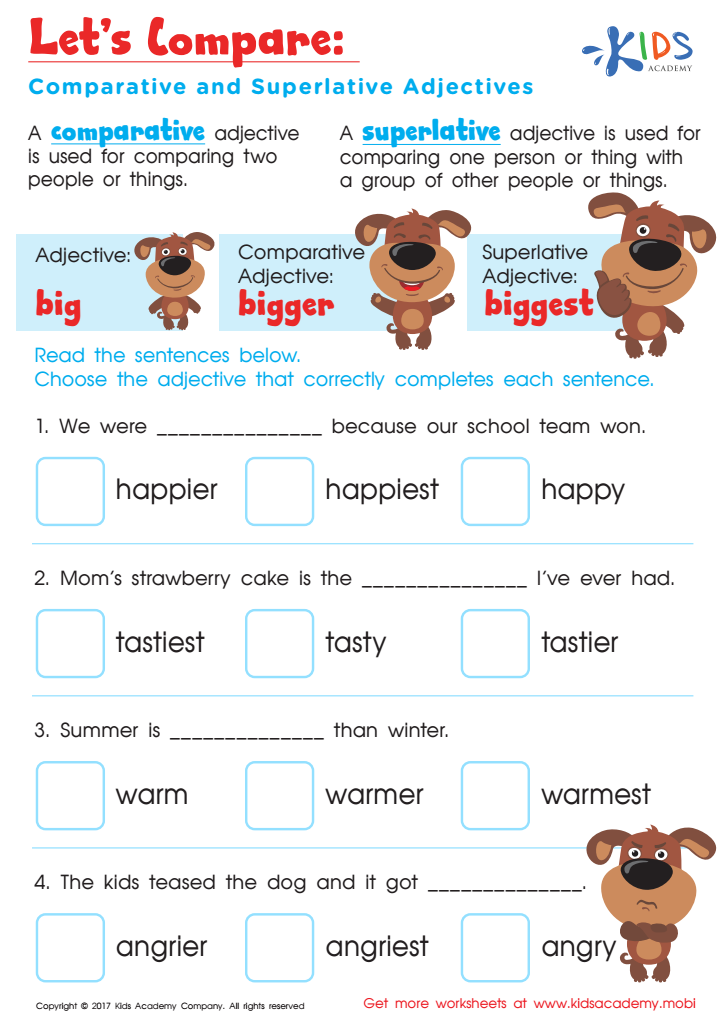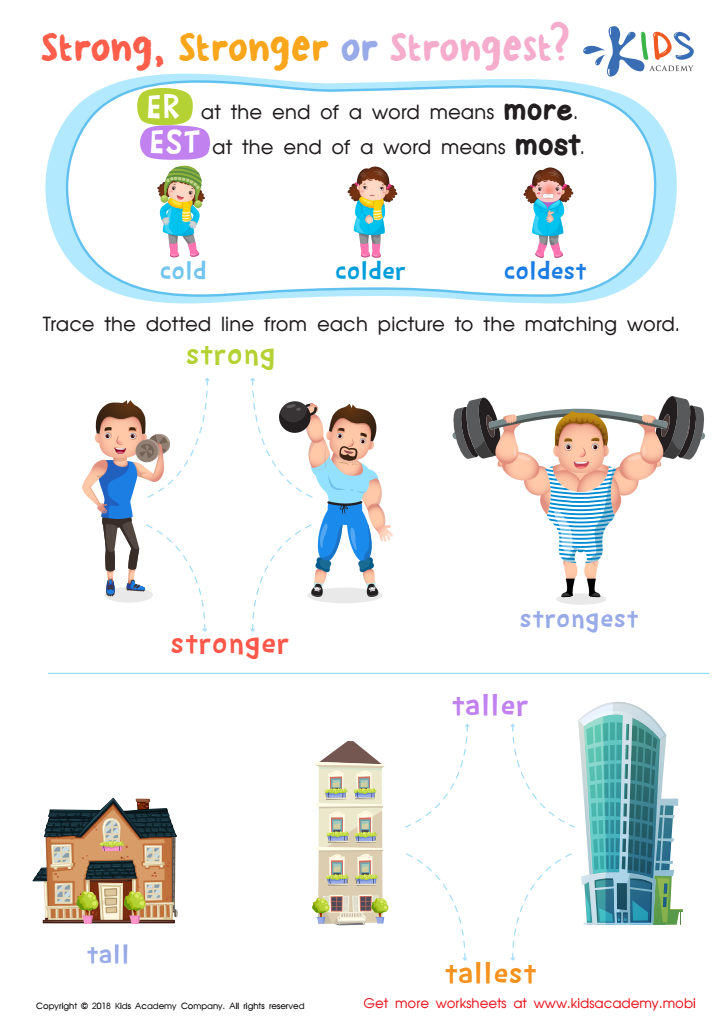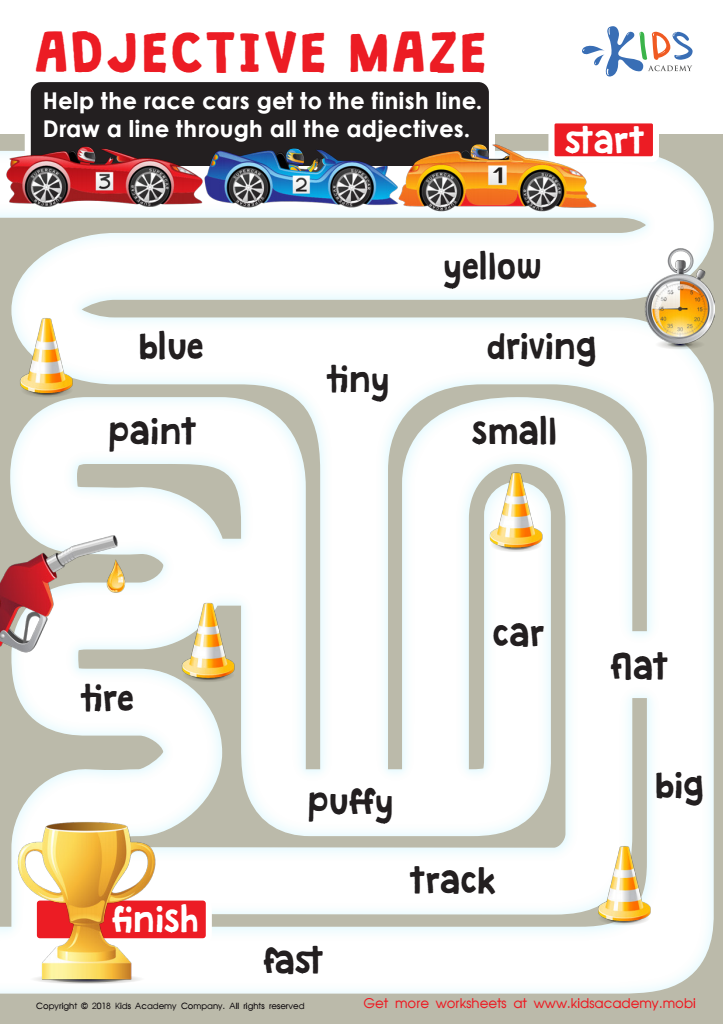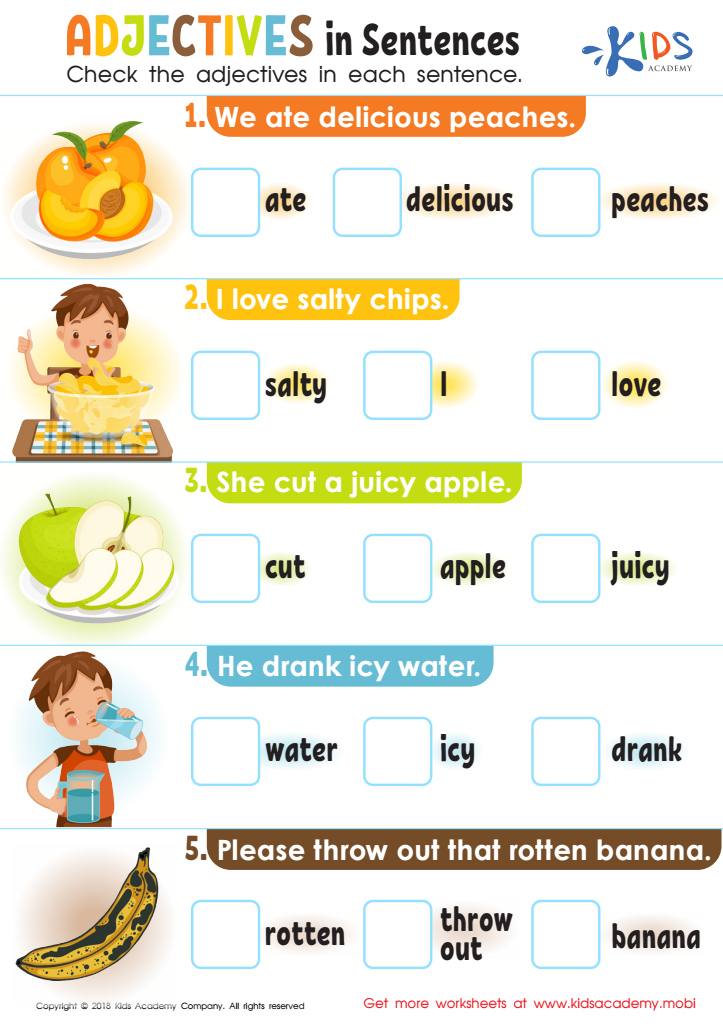Understanding adjectives Writing Worksheets for Ages 4-8
5 filtered results
-
From - To
Enhance your child's writing skills with our "Understanding Adjectives" worksheets designed specifically for ages 4-8. These engaging activities help young learners identify and use adjectives effectively, boosting their vocabulary and descriptive writing abilities. Each worksheet includes fun exercises, such as coloring, matching, and fill-in-the-blank tasks, making the learning process enjoyable. Kids will enjoy exploring the world of descriptive words, empowering them to express themselves with clarity and creativity. Perfect for at-home practice or classroom use, our worksheets provide an excellent way for children to develop crucial language skills and build a strong foundation in writing. Start your adjective adventure today!


Comparative and Superlative Worksheet


Strong or Stronger? Worksheet


Adjective Maze Worksheet


Adjectives Worksheet


Adjectives in Sentences Worksheet
Understanding adjectives is crucial for children aged 4-8 as it significantly enhances their language development, communication skills, and overall literacy foundation. At this stage, children are beginning to expand their vocabulary, and mastering adjectives allows them to express themselves more vividly and accurately. Adjectives describe nouns, providing details about color, size, shape, and feelings, which helps children convey their ideas and emotions effectively.
Teachers and parents should care about this development because a strong grasp of adjectives bolsters creative expression in writing, thus encouraging a love for storytelling and reading. When children use descriptive language, they engage their readers and listeners, making their narratives more compelling. Additionally, familiarizing children with the concept of adjectives promotes critical thinking, as they learn to differentiate and categorize objects, characteristics, and experiences.
Moreover, enhancing understanding of adjectives contributes to improving reading comprehension. When children can identify descriptive language in texts, they gain deeper insights into characters, settings, and emotions. By actively incorporating adjectives into discussions and writing activities, parents and teachers create a rich language environment that helps foster confident communicators and enthusiastic learners, setting the stage for future academic success.
 Assign to My Students
Assign to My Students

















